Navigating The Landscape Of Pregnancy-Safe Skincare: A Comprehensive Guide
Navigating the Landscape of Pregnancy-Safe Skincare: A Comprehensive Guide
Related Articles: Navigating the Landscape of Pregnancy-Safe Skincare: A Comprehensive Guide
Introduction
With enthusiasm, let’s navigate through the intriguing topic related to Navigating the Landscape of Pregnancy-Safe Skincare: A Comprehensive Guide. Let’s weave interesting information and offer fresh perspectives to the readers.
Table of Content
Navigating the Landscape of Pregnancy-Safe Skincare: A Comprehensive Guide
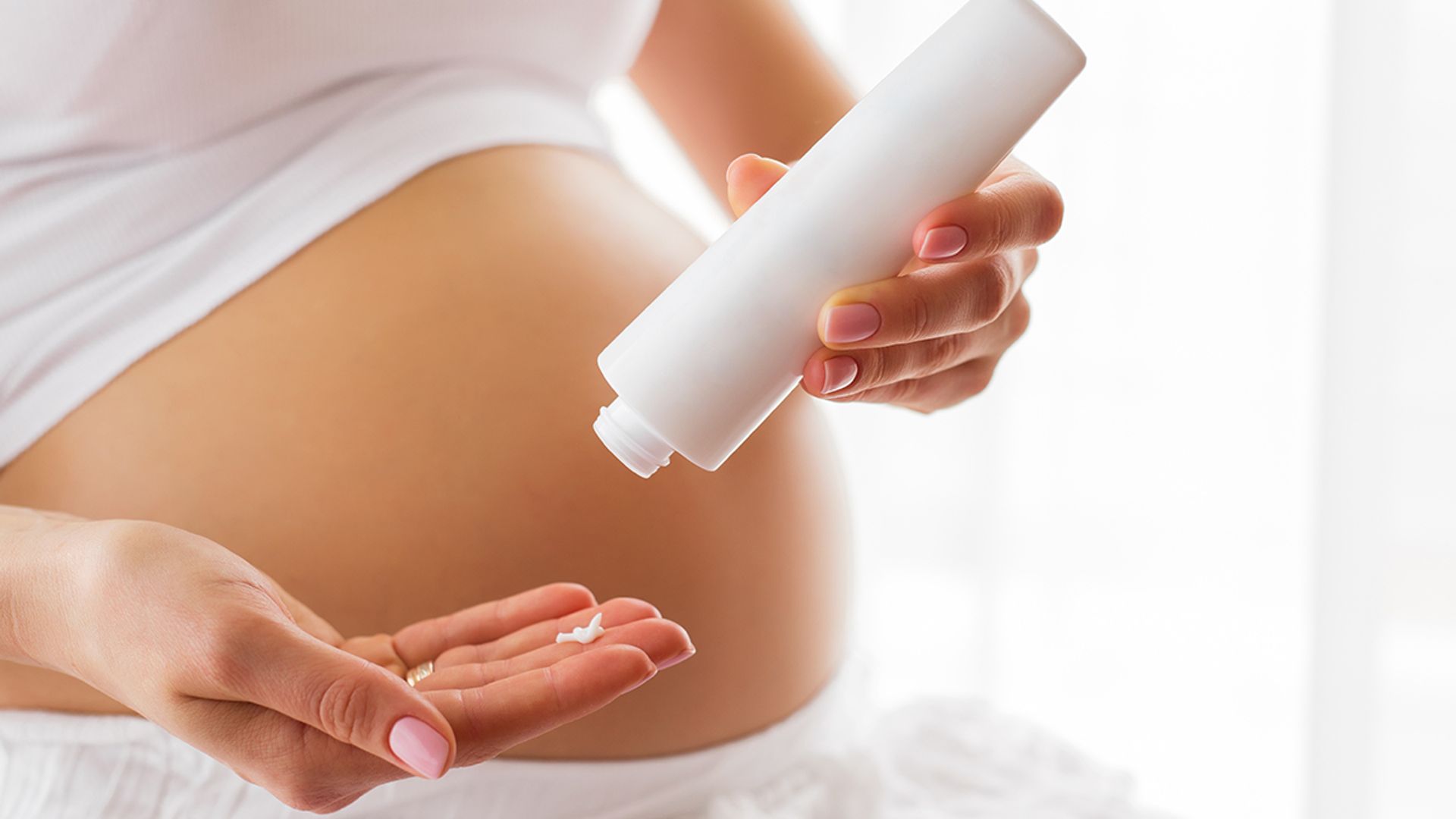
Pregnancy is a transformative period in a woman’s life, marked by significant hormonal shifts that can impact various aspects of her health, including her skin. While these changes can bring about a radiant glow, they can also lead to common skin concerns like acne, hyperpigmentation, and dryness. This necessitates a careful approach to skincare, ensuring the products used are safe for both the mother and the developing baby.
Understanding the Importance of Pregnancy-Safe Skincare
The skin is the body’s largest organ and acts as a barrier against external elements. During pregnancy, the skin undergoes heightened sensitivity and vulnerability, making it susceptible to adverse reactions from harsh chemicals and ingredients. Furthermore, the placenta, which connects the mother and fetus, acts as a filter, and some substances can pass through it, potentially impacting the baby’s health.
The use of pregnancy-safe skincare products becomes crucial for several reasons:
- Minimizing Skin Irritations: Many common skincare ingredients, such as retinoids, salicylic acid, and hydroquinone, are considered unsafe during pregnancy due to their potential to disrupt hormonal balance or cause developmental issues in the fetus. Using products specifically formulated for pregnant women minimizes the risk of skin irritation, allergic reactions, and other complications.
- Maintaining Skin Health: Pregnancy can lead to various skin changes, including acne, melasma, and stretch marks. Using products designed for pregnant women can help address these concerns while ensuring the safety of the mother and baby.
- Promoting a Healthy Pregnancy: By avoiding potentially harmful ingredients, pregnancy-safe skincare practices contribute to a healthier pregnancy and a smoother transition into motherhood.
Identifying Pregnancy-Safe Ingredients and Products
Navigating the vast array of skincare products available can be daunting, especially when trying to decipher which ones are safe for pregnancy. Several factors should be considered when selecting skincare products:
-
Ingredient List: The most crucial aspect is to carefully examine the ingredient list. Look for products free from known teratogenic (harmful to the fetus) ingredients, including:
- Retinoids: These include retinol, tretinoin, and adapalene, which are commonly used to treat acne but can have adverse effects on fetal development.
- Salicylic Acid: While often found in acne treatments, high concentrations of salicylic acid can potentially be absorbed through the skin and reach the fetus.
- Hydroquinone: This ingredient, used for skin lightening, can disrupt hormone balance and potentially lead to developmental issues.
- Fragrances and Essential Oils: While some fragrances are considered safe, others, especially synthetic ones, can trigger allergic reactions and skin sensitivities. Essential oils should be avoided, as they can be potent and may have unknown effects during pregnancy.
- Parabens: These preservatives are commonly found in cosmetics and can disrupt hormone function.
- Phthalates: These chemicals are often used to soften plastics and can interfere with hormone production.
- Formaldehyde: This ingredient is a known carcinogen and should be avoided.
-
Product Labeling: Look for products explicitly labeled as "pregnancy-safe" or "safe for pregnant women." These labels indicate that the manufacturer has taken extra care to ensure the product’s safety during pregnancy.
-
Consult with a Dermatologist: If you have specific skin concerns or require guidance on product selection, consult with a board-certified dermatologist who specializes in pregnancy skincare. They can provide personalized recommendations based on your individual needs and skin type.
Key Benefits of Pregnancy-Safe Skincare
- Reduced Risk of Skin Irritations and Allergies: By avoiding potentially harmful ingredients, pregnancy-safe skincare minimizes the risk of skin irritation, allergic reactions, and other complications.
- Improved Skin Health and Appearance: Products designed for pregnant women address common skin concerns like acne, melasma, and stretch marks, promoting healthier and more radiant skin.
- Enhanced Well-being: Maintaining good skin health during pregnancy contributes to a sense of well-being and confidence, which is essential for navigating the physical and emotional changes of this transformative period.
- Peace of Mind: Knowing that you are using safe and effective skincare products provides peace of mind and allows you to focus on your health and the well-being of your baby.
FAQs on Pregnancy-Safe Skincare
Q: What are the common skin changes during pregnancy?
A: Pregnancy hormones can lead to various skin changes, including:
- Acne: Increased oil production can lead to breakouts, particularly on the face, chest, and back.
- Melasma (Pregnancy Mask): Dark patches of pigmentation can appear on the face, especially around the cheeks, forehead, and upper lip.
- Stretch Marks: As the skin stretches to accommodate the growing baby, stretch marks can appear on the abdomen, breasts, thighs, and buttocks.
- Dryness and Itchiness: Hormonal changes can affect the skin’s moisture balance, leading to dryness and itchiness.
- Increased Sensitivity: The skin may become more sensitive to external stimuli, such as sunlight, fragrances, and harsh chemicals.
Q: Are all natural products safe for pregnancy?
A: While natural products are often perceived as safe, not all are suitable for pregnancy. Some natural ingredients, such as essential oils, can be potent and may have unknown effects during pregnancy. It’s essential to check the ingredient list and consult with a dermatologist before using any natural products during pregnancy.
Q: Can I use sunscreen during pregnancy?
A: Yes, sunscreen is essential for protecting your skin from the sun’s harmful rays, even during pregnancy. Choose a broad-spectrum sunscreen with an SPF of 30 or higher and avoid products containing oxybenzone, octinoxate, and avobenzone, which are potentially harmful during pregnancy.
Q: How can I prevent stretch marks during pregnancy?
A: While there is no foolproof method to prevent stretch marks completely, certain measures can help minimize their appearance:
- Moisturize Regularly: Keeping the skin hydrated can help improve its elasticity. Use a pregnancy-safe moisturizer containing ingredients like hyaluronic acid, shea butter, or cocoa butter.
- Maintain a Healthy Diet: Eating a balanced diet rich in fruits, vegetables, and protein can support skin health and elasticity.
- Stay Hydrated: Drinking plenty of water helps keep the skin hydrated from the inside out.
Q: What are some tips for choosing pregnancy-safe skincare products?
A: Here are some helpful tips for selecting safe and effective skincare products during pregnancy:
- Read the Labels Carefully: Pay close attention to the ingredient list and avoid products containing known teratogenic ingredients.
- Look for "Pregnancy-Safe" Labels: Products explicitly labeled as "pregnancy-safe" or "safe for pregnant women" have been formulated with extra care to ensure their safety.
- Consult with a Dermatologist: A board-certified dermatologist can provide personalized recommendations based on your individual needs and skin type.
- Start with a Patch Test: Before applying any new product to your entire face or body, perform a patch test on a small area of skin to check for any allergic reactions.
- Choose Gentle Products: Opt for products that are fragrance-free, hypoallergenic, and non-comedogenic (won’t clog pores).
- Avoid Over-Exfoliating: Excessive exfoliation can irritate the skin, making it more susceptible to dryness and sensitivity.
- Use a Gentle Cleanser: Choose a cleanser specifically designed for sensitive skin and avoid harsh soaps or detergents.
- Moisturize Regularly: Keep your skin hydrated with a pregnancy-safe moisturizer to prevent dryness and itchiness.
- Protect Your Skin from the Sun: Use a broad-spectrum sunscreen with an SPF of 30 or higher daily.
Conclusion
Pregnancy-safe skincare is a vital aspect of maintaining skin health and well-being during this transformative period. By understanding the potential risks of certain ingredients and choosing products designed specifically for pregnant women, you can effectively address common skin concerns while ensuring the safety of both yourself and your developing baby. Remember to consult with a dermatologist for personalized guidance and to enjoy the journey of pregnancy with radiant and healthy skin.


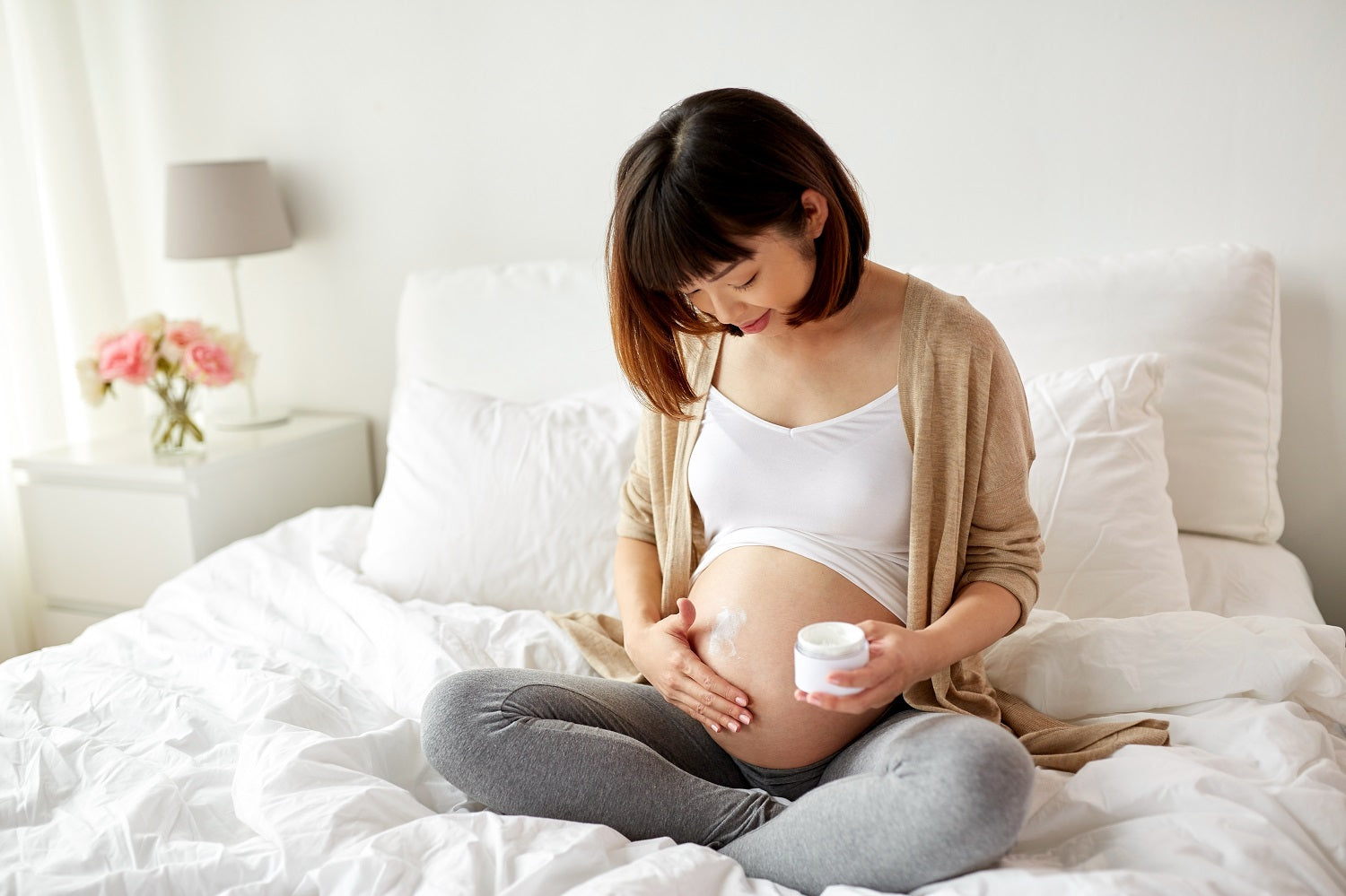
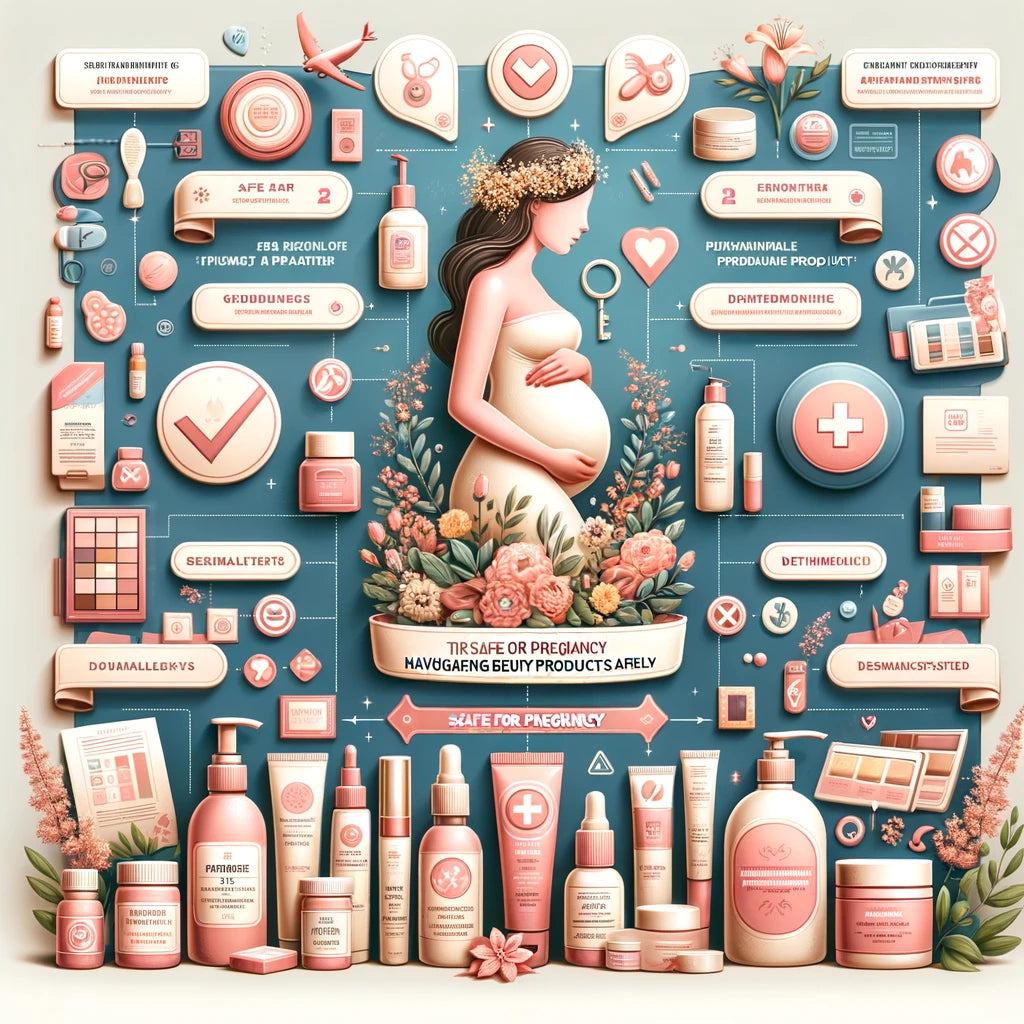
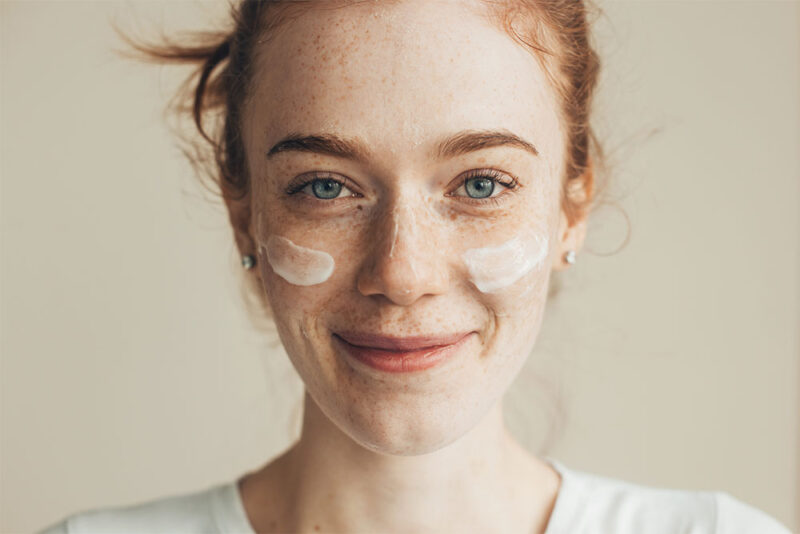


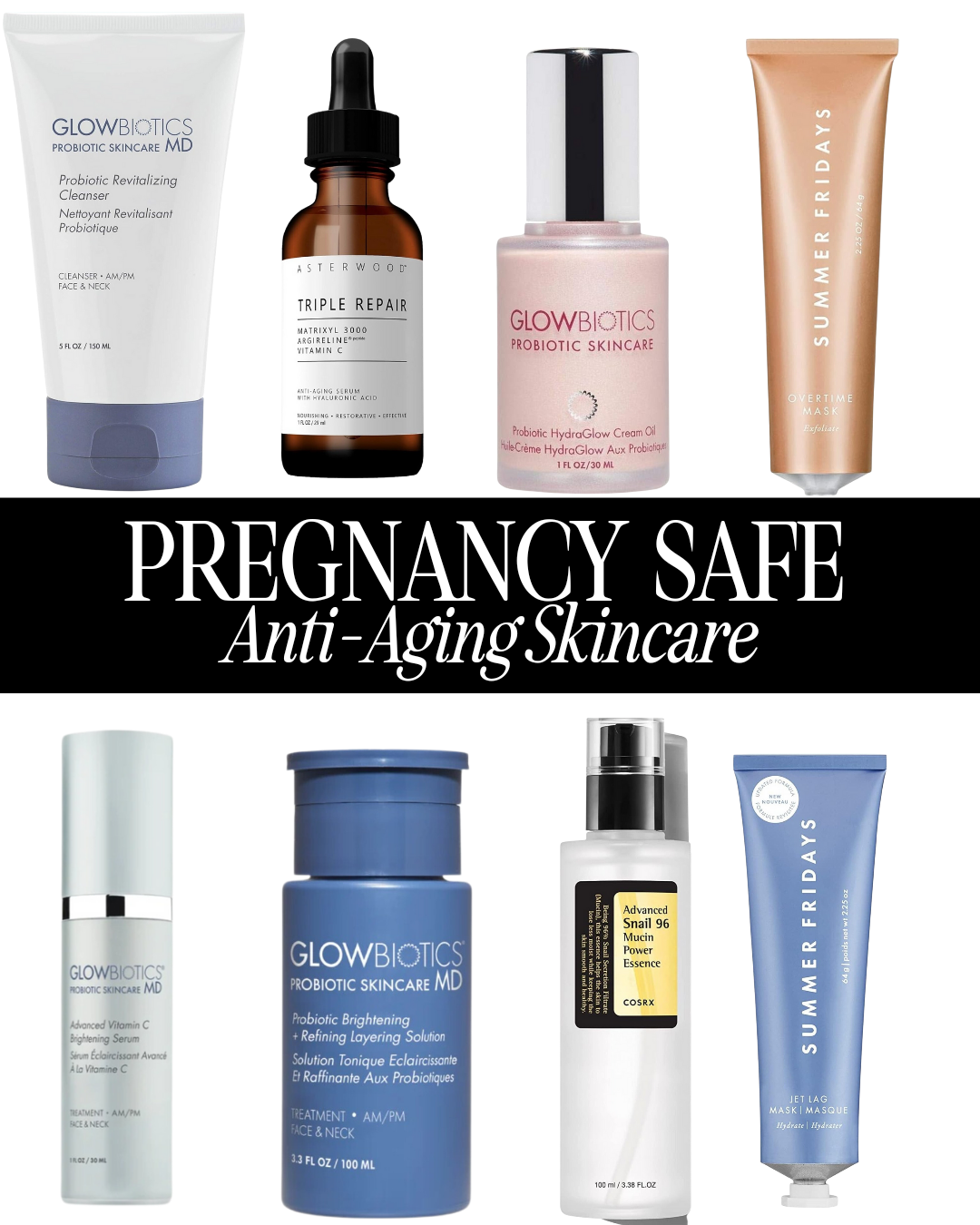
Closure
Thus, we hope this article has provided valuable insights into Navigating the Landscape of Pregnancy-Safe Skincare: A Comprehensive Guide. We appreciate your attention to our article. See you in our next article!
You may also like
Recent Posts
- The Art Of Persuasion: A Comprehensive Guide To Makeup Product Label Design
- A Comprehensive Look At Mary Kay Cosmetics: Reviews, Insights, And Considerations
- Affordable Skin Care: A Guide To Effective Products Under INR 100
- Navigating The World Of Mary Kay Discounted Products: A Comprehensive Guide
- The Power Of High-Resolution Images: A Guide To Acquiring The Best Visuals For Your Projects
- The Power Of Reviews: Navigating The World Of Makeup Products
- Swiss Beauty Makeup: A Comprehensive Guide To Quality And Affordability
- Embracing Natural Beauty: Makeup Tips And Techniques For Women Over 50
Leave a Reply